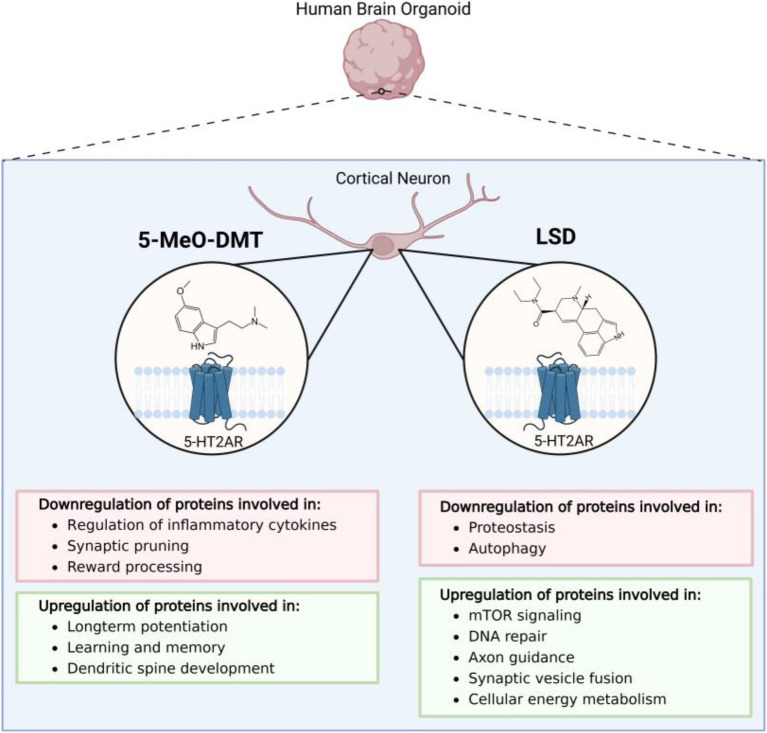Psychedelics meet human brain organoids: insights into proteomics and potential for Alzheimer's disease treatment.
Frontiers in dementia
Pub Date : 2025-08-04
eCollection Date: 2025-01-01
DOI:10.3389/frdem.2025.1605051
引用次数: 0
Abstract
Alzheimer's disease (AD) is characterized by a long preclinical phase lasting more than a decade before the onset of its clinical phase of mild cognitive impairment (MCI) or dementia. Recent advances in psychedelic research underscore numerous neuroplastogenic and anti-inflammatory alterations induced by these compounds, making them promising therapeutic candidates for AD. In this mini review, we will briefly summarize the existing literature using human cerebral organoids to study the molecular and metabolic changes caused by various psychedelic compounds, focusing on their potential therapeutic applications for AD.

致幻剂与人脑类器官相遇:蛋白质组学研究和阿尔茨海默病治疗潜力。
阿尔茨海默病(AD)的特点是在轻度认知障碍(MCI)或痴呆的临床阶段开始之前,有一个长达十年以上的临床前阶段。迷幻药研究的最新进展强调了这些化合物引起的许多神经塑性和抗炎改变,使它们成为治疗AD的有希望的候选药物。在这篇综述中,我们将简要总结现有的利用人脑类器官研究各种致幻剂化合物引起的分子和代谢变化的文献,重点介绍它们在阿尔茨海默病的潜在治疗应用。
本文章由计算机程序翻译,如有差异,请以英文原文为准。
求助全文
约1分钟内获得全文
求助全文

 求助内容:
求助内容: 应助结果提醒方式:
应助结果提醒方式:


